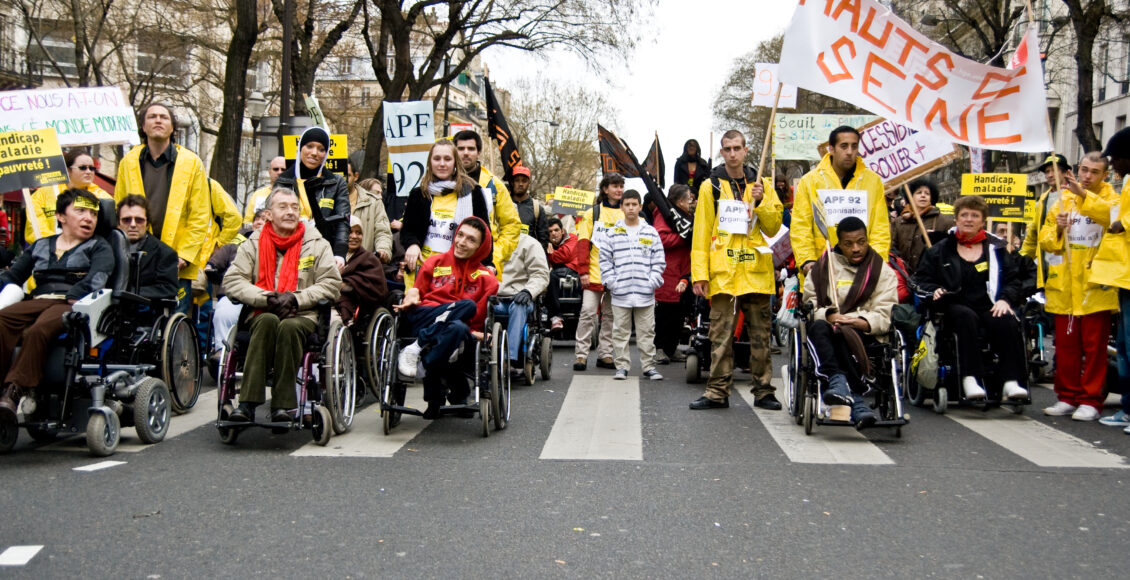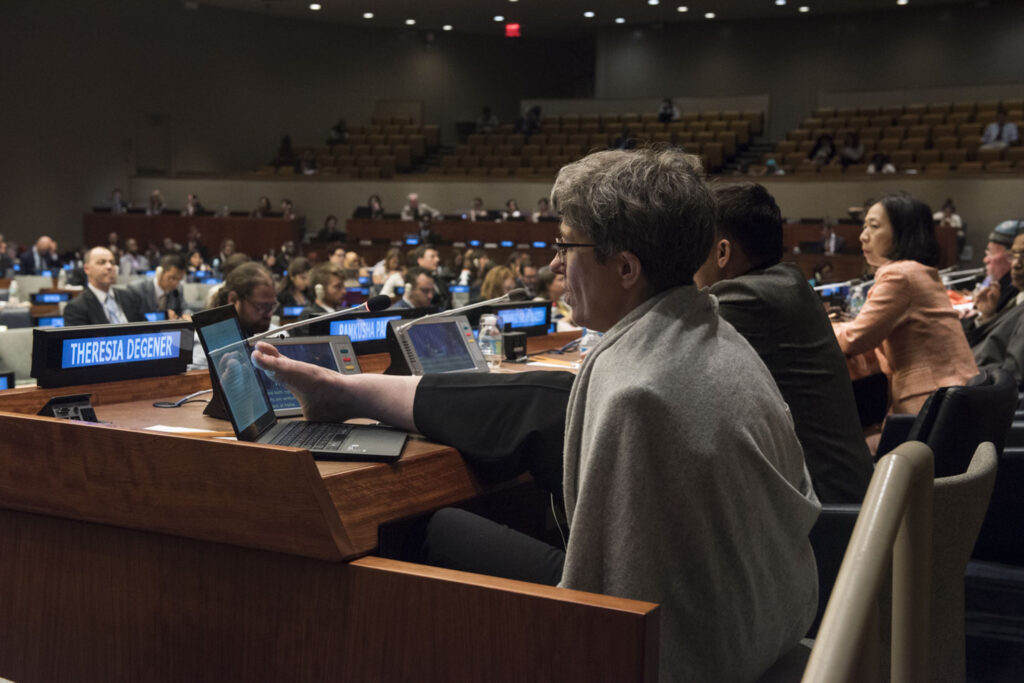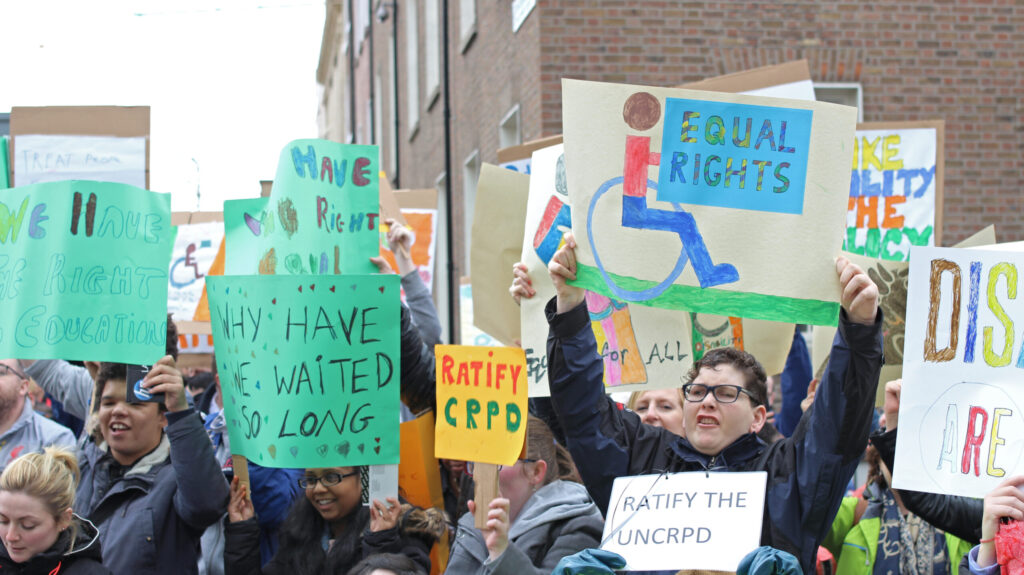More than a Disability: Recent Shifts in Societal Perceptions of Disability

In September 2023, when Spain swore in its first regional parliament member with Down Syndrome, Mar Galcerán, more attention shifted towards individuals with disabilities who make up 16 per cent of the global population. Galcerán’s election marks an important development of increased advocacy and political representation for those with disabilities. Amidst this victory for the disabled community, many organizations, such as Disability Victory in the U.S., are pushing for more candidates with disabilities to run for office and get elected. On the surface, the growing influence of people with disabilities marks a continuance of improved treatment and inclusion of people with disabilities into society and politics. However, underlying prejudiced views about them may not have progressed to the same degree.
Individual impairments and conditions interact with variations in societal structures and processes across world regions so that each person has a unique experience. That being said, I will do my best to not generalize or homogenize people with disabilities. From here on out, my focus will be on societal and political views about people with disabilities, being sensitive that even these are not the same across all situations.
Across much of the West, this homogenization of people with disabilities began with exclusion of people with mental and physical disabilities from society. Often, the majority of people with any kind of disability were put in poorhouses or mental institutions, or left to face poverty with little employment opportunities. While institutionalization and socioeconomic inequality persist, deinstitutionalization, inclusion and accessibility, and anti-discriminatory policies have grown over the last century across various countries. Then, beginning in 2008, the annual United Nations Convention on the Rights of Persons with Disabilities (UNCRPD) has catalyzed global efforts to create policies to improve the lives of those with disabilities.

Progressing Community Advocacy
Much of the historical progress has come from local communities and organizations made of people whose loved ones had a disability. Today, advocacy communities made of these allies still influence larger policy changes. For example, in Canada, local advocates and their communities have called for international accountability when their provincial governments instate unequal pension policies and have continued pushing for specific changes to improve accessible infrastructure. This is only a small example of how years of advocacy have achieved tangible changes in how society operates to improve the lives of people with disabilities. While most advocacy must consider people’s impairments to mobilize improvements in policies and infrastructure, emphasis solely on the impairment can implicitly reduce the people with it to another “problem,” especially if advocacy leaves out the voices of people with disabilities themselves.
However, with the rise of social media, advocacy has progressed towards centring on their voices. On social media platforms, persons with shared disabilities can find support groups to move towards advocating for themselves in their region of the world. Having a social media presence, people with disabilities can dismantle the homogenization of people with disabilities by sharing their unique experiences. Also, welcoming the public into snapshots of their everyday life subtly shifts attention away from the disability to the person. Such a humanizing effect can then shape advocacy. It emphasizes the importance of the voice of people with disabilities, allowing them to shape the focus of advocacy groups. Being able to share their experience beyond disability can also remind advocacy groups to remember the person behind the disability rather than hyper-emphasizing the specific impairment or need the person has.
Of course, whether or not broader attention to these historically diminished voices is still yet to be fully realized. Even Galcerán acknowledges how she still faces the reductionist view of being defined solely by her disability, reminding the public that she wants “to be seen as a person, not just for [her] disability.” Increased inclusion and self-directed advocacy open the opportunity to view people with disabilities with empathy that acknowledges unique differences in the disability experience and in the individual person. Still, much advocacy keeps the language of disability at the center, which then impacts state-level policies.

Regressing State Patterns
For example, in Iceland, despite a ban on forced sterilization in 2019, some loopholes in the policy have allowed for continued forced sterilization of women with disabilities. Given the eugenicist history of sterilization in general, continued forced sterilization reflects dehumanizing views of people with disability as a problem or burden that must be removed. Additionally, controversial prenatal genetic testing for Down Syndrome has resulted in nearly 100 per cent of women who had positive tests terminating pregnancies.
While the Icelandic government upholds women’s rights to abortion no matter the reason, some implicit antagonistic societal views towards people with Down Syndrome appear to be affecting these patterns, especially considering forced sterilization as well. Underlying societal perceptions that define people with disabilities by their impairment have most likely influenced a society where people with disabilities are to be excluded and, in the extreme, removed.
Additionally, the UN has called the United Kingdom government to a hearing for the maltreatment of people with disabilities who were on welfare. After the UN published a report in 2016 that people with disabilities had faced violations due to changes in welfare policies, the UK government was supposed to appear at a hearing in August 2023 for a failure to improve treatment after the report’s findings, but the UK government postponed it to March 2024.
The original findings of maltreatment raise concerns of inequitable and unjust treatment that ignores the rights of people with disabilities. Also, the UK government’s continued slow pace towards action and aversion to accountability demonstrates a lack of care and concern for people with disabilities due to an inability to view them as people with equal rights as those without disabilities. When people with disabilities are only seen for their disability, the severity of violations and maltreatment appear reduced and so do not require immediate action. The events in the UK then demonstrate another extreme outcome of how viewing people as only their disability can lead to governments ignoring fundamental protections and rights.
Moving Forward
These devaluations of people with disabilities because of an inability to view them as more than their disability are not specific to Iceland and the UK, but they can be seen whenever a local or state-level government ignores the voices of people with disabilities and allied advocates, by, even indirectly, creating systems of intolerance and being slow to instate transformative structural improvements. While the UNCRPD has allowed for international accountability, the UN cannot directly combat the ideological undercurrent of exclusion and inequality.
The continued push for individuals with disabilities to shape community, state, and international discussions holds great hope for more progress in society’s views towards disability. Galcerán’s election, improved policies achieved by advocacy groups, and individuals with disabilities disrupting homogenization and reductionism by voicing their own experiences are all worthy of immense celebration. However, even as people with disabilities are rising to positions of power and influence, many conversations still overemphasize the disability in spite of the person who has it. As society faces both progress and regression with views about people with disabilities, a major shift is still unfulfilled, but perhaps in the making: viewing the person as more than only their disability.
Edited by Zoe Lister,
Featured Image: “A 2009 protest in Paris led by people with disabilities and their allied advocates. “Disabled Demonstration: Neither poor, nor submissive” by Phillipe Leroyer licensed under CC BY-NC-ND 2.0 Deed”
